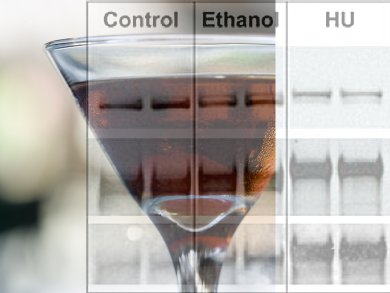Alcohol is known to be carcinogenic to humans in the upper aerodigestive tract, liver, colorectum, and the female breast. Evidence suggests that acetaldehyde, the primary metabolite of alcohol, plays a major role in alcohol-related esophageal cancer.
Philip J. Brooks, National Institute on Alcohol Abuse and Alcoholism (NIAAA), USA, and colleagues used human cells engineered to metabolize alcohol into acetaldehyde by alcohol dehydrogenase 1B (ADH1B). They exposed these cells to 20 mM EtOH, concentrations that would equate to levels found in the human body during social drinking.
The cells converted the alcohol into acetaldehyde, and this resulted in increased levels of acetaldehyde-DNA damages that may have implications for breast and liver cancers. In addition, the cells responded by activating the Fanconi anemia-breast cancer susceptibility (FA-BRCA) DNA network.
The results have implications for identifying individuals who are at differential risk for alcohol-related cancers and could have important consequences for cancer prevention. More studies in animals and humans will be necessary.
- Alcohol Metabolism in Human Cells Causes DNA Damage and Activates the Fanconi Anemia–Breast Cancer Susceptibility (FA-BRCA) DNA Damage Response Network,
Jessy Abraham, Silvia Balbo, David Crabb, Phillip J. Brooks,
Alcoholism: Clinical & Experimental Research 2011.
DOI: 10.1111/j.1530-0277.2011.01563.x


